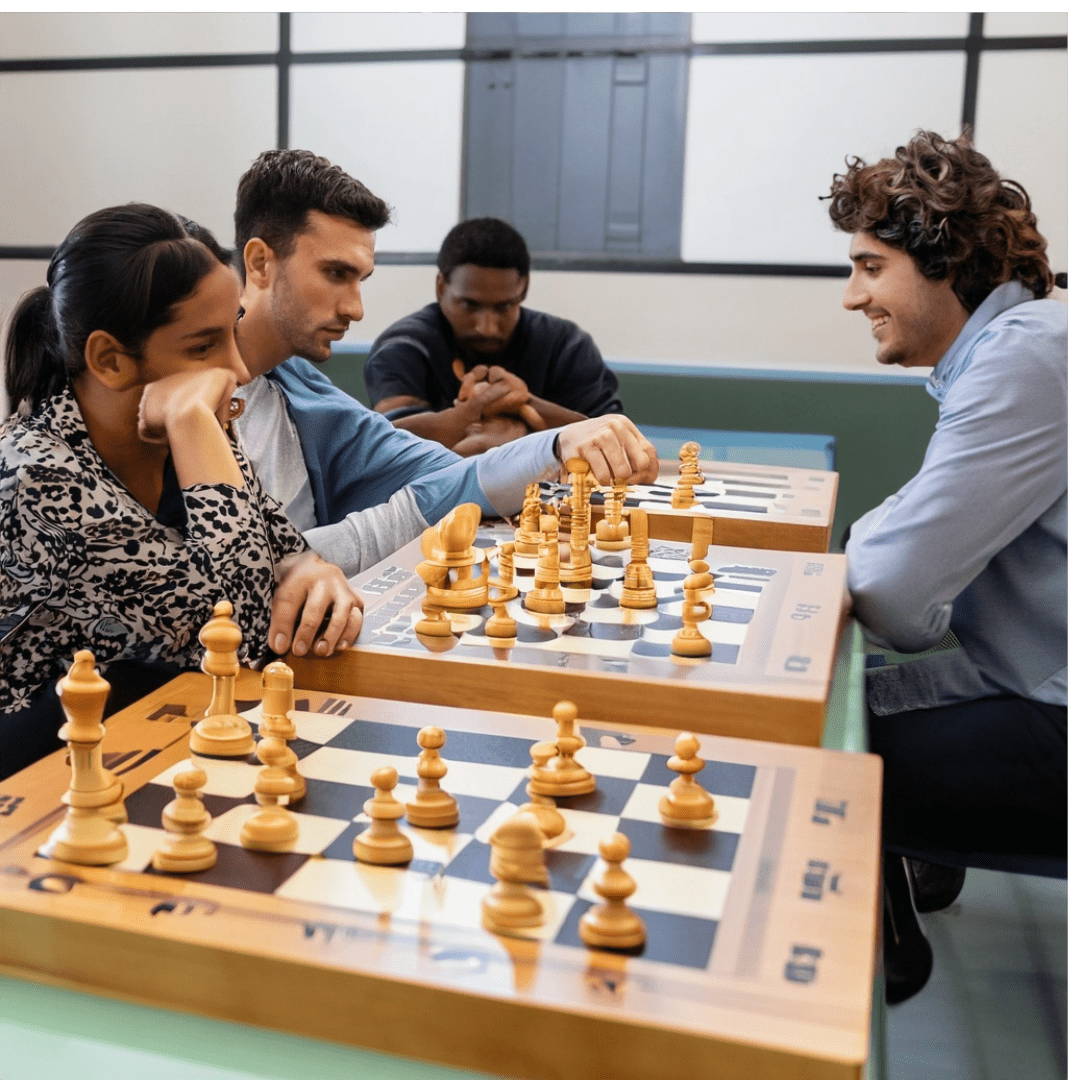Chess is not just a test of intellectual skill but also a profound psychological battle. Understanding and mastering the psychological aspects of chess training can greatly enhance a player’s ability to perform under pressure, strategize effectively, and achieve success. This article explores the key psychological strategies involved in chess training.
1. Developing Mental Toughness
- Mental toughness is crucial for handling pressure during critical moments in the game.
- Training should include scenarios that mimic high-pressure situations to build resilience and confidence.
2. The Role of Concentration and Focus
- Concentration and focus are essential in chess to analyze the board, anticipate moves, and make strategic decisions.
- Techniques like meditation and mindfulness can help improve these mental skills.
3. Managing Emotions and Stress
- Emotional control is vital to prevent rash decisions and maintain a clear head.
- Stress management techniques should be incorporated into training to help players stay calm and composed.
4. Strategic Thinking and Planning
- Chess requires long-term strategic thinking and the ability to plan several moves ahead.
- Exercises that enhance cognitive skills like memory, visualization, and decision-making are beneficial.
5. Psychological Preparation for Competition
- Preparing psychologically for tournaments is as important as physical preparation.
- This includes setting goals, visualizing success, and developing a pre-game routine to foster a positive mindset.
6. The Role of Psychology in Learning and Improvement
- Understanding the psychology behind learning can accelerate improvement.
- This includes recognizing individual learning styles, using positive reinforcement, and setting achievable milestones.
7. Coping with Loss and Failure
- Learning to cope with defeat is essential for psychological resilience.
- Training should include post-game analysis and reflective practices to learn from losses without being demoralized.
8. Enhancing Creativity on the Chessboard
- Creativity in chess leads to innovative strategies and unexpected moves.
- Encourage creative thinking through diverse and unconventional training exercises.
9. The Importance of Patience and Perseverance
- Patience and perseverance are key virtues in chess.
- Coaches should emphasize the value of patience in both training and actual gameplay.
10. Building a Supportive Training Environment
- A supportive environment can positively impact a player’s mental state and performance.
- This involves creating a community where players can share experiences, challenges, and strategies.
Conclusion
The psychological aspects of chess training are integral to developing not just a skilled player, but a complete chess strategist. By focusing on mental toughness, concentration, emotional control, and other psychological strategies, players can gain a significant advantage on the chessboard. Coaches and players who invest in these mental aspects are likely to see substantial improvements in performance and enjoyment of the game.

